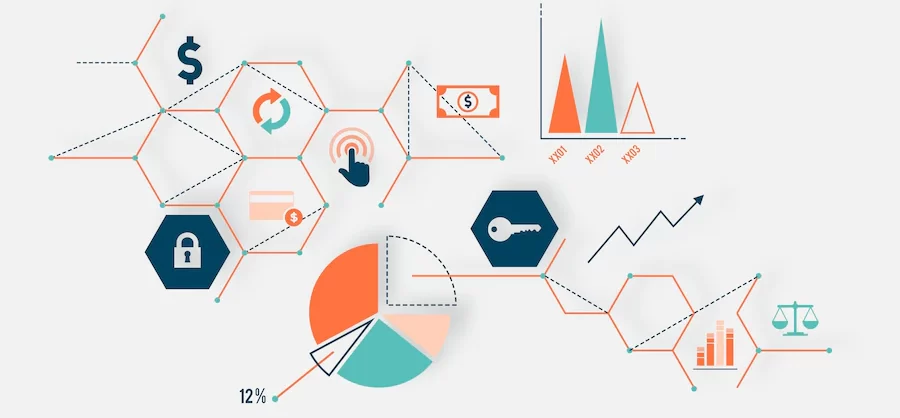Understanding Business Analytics and Leveraging Data to Make Informed Decisions
In today’s rapidly evolving business landscape, the ability to acquire, analyze, and utilize data effectively has become crucial to maintaining a competitive edge. Companies that integrate data analytics into their decision-making processes consistently outperform their competitors. Regardless of your business’s size or scale, leveraging data to inform decisions can significantly improve performance and profitability. This article explores how to harness the power of data and business analytics to achieve better results for your enterprise.
What is Business Analytics?
Business analytics is the practice of methodically exploring an organization’s data with a focus on statistical analysis. It helps businesses identify their most important goals, gather relevant data, analyze and interpret it, and use the insights gained to make informed decisions. Business analytics can be categorized into four primary types:
- Descriptive Analytics: This involves analyzing historical data to understand what has happened in the past.
- Diagnostic Analytics: This type digs deeper to find the causes of past outcomes.
- Predictive Analytics: This uses statistical models and machine learning techniques to predict future outcomes based on historical data.
- Prescriptive Analytics: This suggests possible courses of action based on the analysis.
Business analytics transforms historical company data into insightful knowledge, enabling better decision-making. However, the real challenge lies in using the information from the analysis to guide business decisions effectively.
How to Leverage Data to Make Informed Business Decisions
Here are several ways businesses can use data to facilitate the decision-making process:
Identify Trends
Analyzing historical business data can reveal trends and patterns that might have previously gone unnoticed. For instance, you might discover that demand for a specific product spikes during certain times of the year. Recognizing such patterns allows you to adjust your inventory and marketing strategies accordingly. Major corporations often use economic data calendars to identify business and economic trends.
An economic data calendar tracks events likely to impact the financial markets or a particular industry. For example, operate a business that deals with multiple currencies. An economic data calendar can help you anticipate changes in the dollar index and determine the best times to trade different currencies.
Improve Efficiency
Operational efficiency is a critical determinant of a company’s success. Data analysis can uncover inefficiencies within your business operations. For instance, a sales data analysis might reveal that while one product line is performing exceptionally well, another is lagging. This insight allows you to adjust your inventory management and marketing efforts to address these disparities.
Amazon is a prime example of a company that uses data to enhance operational efficiency. By monitoring over 2000 historical data points, Amazon tracks orders, minimizes fraudulent transactions, and recommends products customers will likely purchase. This data-driven approach has been instrumental in Amazon’s rise to prominence.
Manage Risk
Predictive analytics can help businesses anticipate and mitigate risks. By analysing historical data, companies can identify potential threats and proactively address them. For instance, predictive analytics can help a company forecast customer churn and implement strategies to retain at-risk customers.
American Express, for example, uses big data and historical transaction analysis to predict which accounts are likely to close within four months in their Australian market. Similarly, Starbucks uses data analytics to determine the most profitable locations for new stores, significantly reducing the risks associated with expansion.
Measure Performance
Regular performance measurement is essential for any business. Data analytics enables businesses to track their performance over time, identify what is working, and pinpoint areas that need improvement. Key performance indicators (KPIs) aligned with the company’s goals provide valuable insights into various aspects of the business.
It is crucial to focus on meaningful metrics rather than vanity ones that do not provide actionable insights. Google exemplifies effective performance measurement through its Project Oxygen initiative. Google identified common attributes of high-performing managers by mining data from over 1,000 performance reviews and correlating it with employee retention rates. This information was then used to design training programs to cultivate these attributes in their managers.
Enhance Customer Experience
Data analytics can also significantly improve customer experience. By analyzing customer data, businesses can gain insights into customer preferences, behaviour, and feedback. This enables companies to tailor their products, services, and marketing efforts to meet customer needs better.
For instance, Netflix uses data analytics to personalize user content recommendations. By analyzing viewing habits and preferences, Netflix can suggest movies and TV shows that are likely to appeal to individual users, enhancing the overall user experience.
Optimize Marketing Strategies
Marketing is another area where data analytics can have a profound impact. Businesses can analyse data from various marketing channels to determine which strategies are most effective and allocate resources accordingly. This helps optimise marketing campaigns, improve customer acquisition, and increase return on investment (ROI).
A notable example is Coca-Cola’s use of data analytics to optimize its marketing efforts. Coca-Cola collects data from various social media sources to understand consumer sentiment and preferences. This information is then used to tailor marketing campaigns and product offerings to meet consumer needs better.
Foster Innovation
Data-driven decision-making can also foster innovation within an organization. Businesses can identify opportunities for new products or services by analysing market trends and customer feedback. Data analytics can also help evaluate new initiatives’ potential success before they are fully implemented.
IBM, for instance, uses data analytics to drive innovation in its product development process. By analyzing customer feedback and market trends, IBM can identify emerging needs and develop new solutions that effectively address these needs.
The Importance of Data Quality
While the benefits of data analytics are vast, it is essential to remember that the quality of the data is paramount. Inaccurate or incomplete data can lead to erroneous conclusions and poor decision-making. Therefore, ensuring data accuracy and reliability is crucial for successful data analytics.
Businesses must invest in robust data management practices, including data cleansing, validation, and integration. Additionally, fostering a data-driven culture within the organization, where employees are trained to understand and utilize data effectively, can significantly enhance the value derived from data analytics.
Conclusion
In the modern business environment, leveraging data and business analytics is not just an advantage; it is a necessity. Businesses can make informed decisions that drive success by effectively utilizing data to identify trends, improve efficiency, manage risk, measure performance, enhance customer experience, optimize marketing strategies, and foster innovation.
However, it is essential to approach data analytics with a clear strategy and a focus on data quality. With the right tools and techniques and a commitment to data-driven decision-making, businesses of all sizes can harness the power of data to achieve better outcomes and maintain a competitive edge in their respective industries.



















